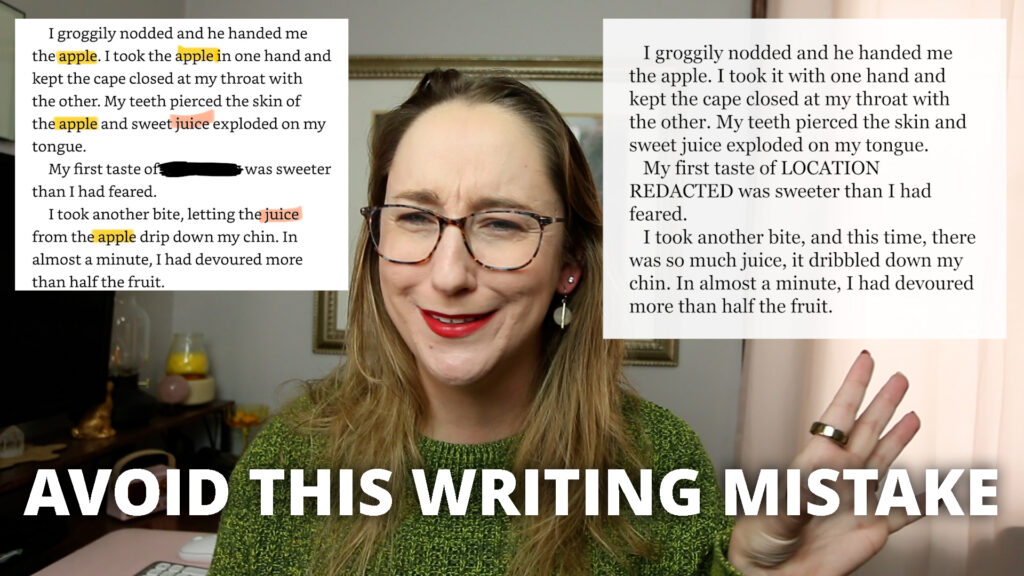When you’re writing and publishing, one of the first lessons to learn is that not everyone will love your work. And that’s okay! Not everyone will resonate with your writing style, characters, or plot. What matters is making your story the best it can be so as many readers as possible can enjoy it.
Today, I want to share a quick editing tip inspired by something I noticed in a book I recently read. No, I’m not naming the book or the author—that’s not the point. Instead, I’ll highlight a common issue writers face and how you can fix it.
Let’s talk about echoes.
What Are Echoes?
Echoes happen when the same word appears repeatedly in a short amount of text—not as an intentional stylistic choice, but accidentally. Here’s an example:
“I groggily nodded and he handed me the apple. I took the apple in one hand and cut the cape closed at my throat with the other. My teeth pierced the skin of the apple, and sweet juice exploded on my tongue. My first taste of [location redacted] was sweeter than I had feared. I took another bite, letting the juice from the apple drip down my chin, and in almost a minute I had devoured more than half the fruit.”
Did you notice it? The word apple is repeated multiple times in just a few sentences. This repetition pulled me out of the story, even though I was initially immersed. The issue wasn’t limited to just “apple.” The book also repeated words like “gate,” “dress,” and even “diadem.”
Why Echoes Matter
When words are overused, it disrupts the flow of your story and distracts readers. Instead of staying absorbed in the narrative, they start noticing the writing itself—and not in a good way.
How to Spot and Fix Echoes
As writers, we often don’t notice these repetitions because we’re so close to our work. Here’s how to tackle them:
- Step Back from the Page
Think of your page as a piece of art. Don’t read it—just scan it. Look for words that pop out repeatedly. - Recognize Your Crutch Words
Every writer has them. For me, it’s had, as in “she had been doing this” instead of the more concise “she was doing this.” In fantasy romance, I tend to overuse eyes and gaze. Identifying these habits is the first step to breaking them. - Rephrase and Simplify
If I were to revise the example above, I’d replace most instances of “apple” with pronouns or more descriptive phrasing:
“I groggily nodded, and he handed me the apple. I took it with one hand and clasped the cape closed at my throat with the other. My teeth pierced the skin, and sweet juice exploded on my tongue. My first taste of [location redacted] was sweeter than I had feared. I took another bite, and there was so much juice that it dripped down my chin. In almost a minute, I had devoured more than half the fruit.”
See? Just a few tweaks can make a world of difference!
- Read Widely, Edit Thoughtfully
Reading widely helps you notice patterns and techniques in other authors’ works. You can then bring those insights into your own writing.
Final Thoughts
No book is perfect. Every story is a work of art, and art is subjective. There will always be quirks and imperfections, and that’s part of what makes your writing unique. But minimizing distractions like echoes can make your story even stronger.
Let me know—what are your crutch words? How do you tackle echoes in your writing? Let’s share tips and experiences to grow together as writers.
Thanks for reading, and happy writing!

